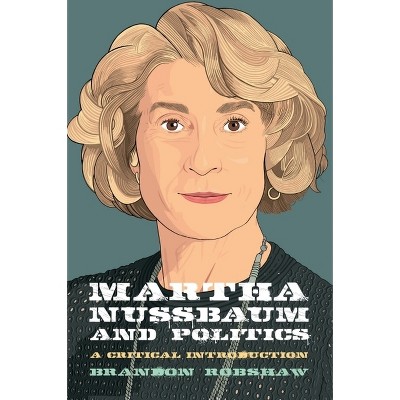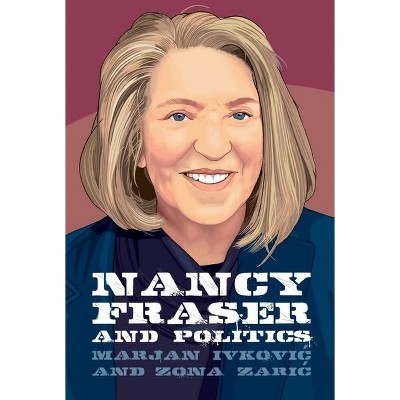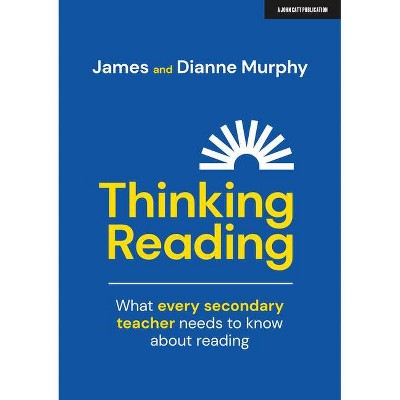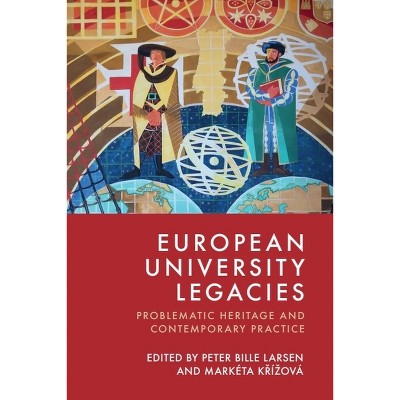Freedom to Know - (Thinking World Philosophies) by Monika Kirloskar-Steinbach (Hardcover)

$120.99 when purchased online
Target Online store #3991
About this item
Highlights
- In this book, Monika Kirloskar-Steinbach studies how Bhimrao Ambedkar (1891-1956), W.E.B. Du Bois (1868-1963), Mohammed Iqbal (1877-1938), Pandita Ramabai (1858-1922) and Rabindranath Tagore (1861-1941) diagnose the epistemic oppression they perceive and experience, their analysis of the coloniality of being as its cause, and their proposals to counter it.
- Author(s): Monika Kirloskar-Steinbach
- 232 Pages
- Political Science, Colonialism & Post-Colonialism
- Series Name: Thinking World Philosophies
Description
About the Book
Asks how a (world) community can be created to allow structural minorities equitable access to hermeneutical and material resources.Book Synopsis
In this book, Monika Kirloskar-Steinbach studies how Bhimrao Ambedkar (1891-1956), W.E.B. Du Bois (1868-1963), Mohammed Iqbal (1877-1938), Pandita Ramabai (1858-1922) and Rabindranath Tagore (1861-1941) diagnose the epistemic oppression they perceive and experience, their analysis of the coloniality of being as its cause, and their proposals to counter it. Kirloskar-Steinbach explores how these voices seek to co-create a space in which they can experience what it means to be free from the conceptual domination of academic frameworks, relish that freedom with their collaborators and, in the equal participation that that space affords, develop open-ended concepts that help them to resist the coloniality of being.Review Quotes
The geography of reason has shifted. For decades, W.E.B. Du Bois has been deemed "philosophical" only to the extent that he could be read in relation to American pragmatists or German idealists. Monika Kirloskar-Steinbach's Freedom to Know refuses this complicity with the limitations of Western philosophy. She reads Du Bois alongside Bhimrao Ambedkar, Pandita Ramabai, Rabindranath Tagore, and Mohammed Iqbal as thinkers striving to reclaim the dignity and humanity denied to the darker races of the world by white supremacy. This marks an exciting turn in Du Bois scholarship and a novel intervention in anti-colonial theory.--Prof. Tommy J. Curry, author of The Man-Not: Race, Class, Genre, and the Dilemmas of Black Manhood
Freedom to Know brings together a cast of unlikely characters--poets, constitutionalists, philosophers from India and the US to draw our attention to the way that epistemic arrogance and colonial dominance concealed the robust and astute insights of thinkers living under European and U.S.-based imperialism. Kirloskar-Steinbach unravels the complex intellectual and geopolitical paths of each thinker, illuminating their insights and shared political goals. This work is clearly written, belying the enormous labors and skills required to understand each in their epistemic depths. In doing so, she reveals their decolonial approaches to undo the violence of colonialism. This book will appeal to scholars of South Asian studies, Islamic studies, African American thought, not to mention political philosophers and thinkers. A crucial read.--Falguni A. Sheth, Emory University
Professor Kirloskar-Steinbach's Freedom to Know is a welcome addition to the literature on Indian philosophy in the pre-independence period and on the relationships between Indian philosophers and their colleagues outside of India during that period. Drawing creatively on contemporary feminist epistemology, Kirloskar-Steinbach explores with great clarity the diverse ways in which B.R. Ambedkar. W.E.B. DuBois, Muhammed Iqbal, Pandita Ramabai Sarasvati, and Rabindranath Tagore critique colonial, Indian, and American hierarchies of caste, race, religious communities, gender, and nationality, and the ways in which this group of philosophers developed a liberative cosmopolitan vision in the context of colonialism and racism. The treatment of each philosopher is lucid, and the fabric Prof. Kirloskar-Steinbach weaves is shimmering and illuminating. A must-read for anyone interested in the history of 20th century philosophy or in Indian intellectual history.--Jay L. Garfield, Smith College and the Harvard Divinity School
Can the subaltern ... know? Monika Kirloskar-Steinbach delivers a philosophical tour de force, reshaping the ways we think about knowledge, race, and the contours of global political thought. Theoretically sharp and historically grounded, Freedom to Know is essential reading for anyone interested in comparative political theory and global philosophy.--Alexander Livingston, Cornell University
Dimensions (Overall): 8.5 Inches (H) x 5.43 Inches (W)
Suggested Age: 22 Years and Up
Number of Pages: 232
Genre: Political Science
Sub-Genre: Colonialism & Post-Colonialism
Series Title: Thinking World Philosophies
Publisher: Edinburgh University Press
Format: Hardcover
Author: Monika Kirloskar-Steinbach
Language: English
Street Date: October 31, 2025
TCIN: 1002787478
UPC: 9781399550536
Item Number (DPCI): 247-38-0383
Origin: Made in the USA or Imported
Shipping details
Estimated ship dimensions: 1 inches length x 5.43 inches width x 8.5 inches height
Estimated ship weight: 1 pounds
We regret that this item cannot be shipped to PO Boxes.
This item cannot be shipped to the following locations: American Samoa (see also separate entry under AS), Guam (see also separate entry under GU), Northern Mariana Islands, Puerto Rico (see also separate entry under PR), United States Minor Outlying Islands, Virgin Islands, U.S., APO/FPO
Return details
This item can be returned to any Target store or Target.com.
This item must be returned within 90 days of the date it was purchased in store, shipped, delivered by a Shipt shopper, or made ready for pickup.
See the return policy for complete information.











